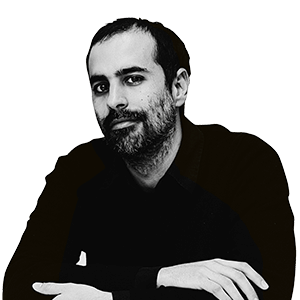“I had panic attacks, I couldn’t act”: the protagonists of the year’s most harrowing cinematic experience speak out
'The Voice of Hind' premieres, recreating the real distress call of a girl on the Palestinian Red Crescent emergency phone line


BarcelonaOn January 29, 2024, the Palestinian Red Crescent emergency service received a call from Layan Hamadeh, a very distressed 15-year-old girl who said that the car she and her family were fleeing Gaza City in had been attacked by the Israeli army, and that her parents were dead. "They're shooting at us! We're in a car, and the tank is right next to us!" the girl was heard saying before a burst of gunfire silenced her voice. When Red Crescent operators called the cell phone, it was answered by a six-year-old girl, Hind Rajab, Layan's cousin, who had also been in the car. Terrified, she explained that all the other occupants of the car were dead: her aunt and uncle and her three cousins. Between sobs, she pleaded for rescue: "I'm so scared, please come. Get me out of here." On February 10, after the Israeli army withdrew, Hind's family was able to enter the city and find the car containing the bodies of the girl, her aunt, uncle, and cousins. A subsequent investigation revealed the vehicle had sustained 355 bullet impacts.
Tunisian filmmaker Kaouther Ben Hania, who in 2011 secured Tunisia's first Oscar nomination with The man who sold the skin and in 2024 he received another nomination with the documentary The four daughtersHe listened to an audio recording of Hind's call and felt "an overwhelming wave of helplessness and sadness." After speaking with Hind's mother and listening to the recording of all the calls between Hind and the Red Crescent—more than 70 minutes—he began preparing a film about the events, but focusing on the Red Crescent's emergency service and the hours of anxiety, helplessness, and despair experienced by the volunteers. This allowed Ben Hania to combine the work of professional actors recreating the volunteers' actions and, in a decision that amplifies the film's emotional impact, to include Hind's real voice, taken from the call recording. The strategy is not subtle, but it is extraordinarily effective: how can you hear a child's real cry for help without your heart breaking?
Awarded the Grand Jury Prize at the Venice Film Festival And with an Oscar nomination in hand, Hind's voice It premieres this Friday in theaters. Saja Kilani and Motaz Malhees are the two Palestinian actors who play Rana and Omar, the volunteers who answered Hind's call. "During rehearsals, we never heard Hind's real voice," Kilani explained to ARA during the San Sebastián Film Festival. "I had heard some fragments, but we heard most of it for the first time during filming. So our reactions are very real, because even though we knew the script, reading it is one thing." Malhees says that, for him, hearing Hind's voice was "like being beaten to death." "My character first receives Layan's call, which is already very hard, but when you hear a six-year-old girl begging to be rescued, you feel a rage that makes you explode," he adds. "You feel powerless and you think about all the children in your family."
A shoot full of love and respect
The actor had no trouble putting himself in Hind's shoes: "I grew up in Palestine and at one point I even thought I wouldn't make it, that they would kill me. It was close, actually; a matter of centimeters." Malhees, who has worked in film and theater in the United States, Europe, and the Middle East, believes his work in Hind's voice It's "the toughest experience" of her career. "I had panic attacks, I couldn't act," she admits. "I felt like my heart was going to explode, I thought I was having a heart attack. I couldn't have endured it if it weren't for the energy of the film crew, for the great love and respect for Hind's story that everyone on set felt. That's what helps you change."
Both actors met the volunteers they were portraying to prepare for filming. What impressed Kilani most about the real Rana when they met was that she was still working for the Red Crescent. "She had just finished a very long shift," the actress recalls. "After everything that happened, she was still active. Helping me prepare for the role reopened a wound that hadn't healed, but she did it anyway. She's very generous, a very strong person, and she wanted to do the film justice." Rana also helped her find her acting niche. "He told me to listen to his story but not to copy it, and that allowed me to express myself through the script and for my reactions to be more real," the actress points out. Malhees says that, as a result of filming, he and Omar are now friends: "For me, he's a hero, the guy who receives everyone's distress calls. It's a very, very thankless job."
In San Sebastián, the day before the interview with ARA, Malhees and Kilani experienced a situation that had never been seen before at the festival: after the screening of Hind's voiceAround 10,000 people gathered outside the Victoria Eugenia Theatre, and the actors led a march protesting the genocide in Gaza. "It was very moving," says Kilani. "We knew there was a demonstration, but we didn't think it would have so much support." "We expected 70 or 80 people, not 10,000," adds Malhees. "And the best thing is that we didn't feel like people were pitying us in a patronizing way, but rather that they wanted to be by our side, to share our struggle." And as the interview draws to a close, he asks to make one last point: "Spain is the bravest country in the entire West. I hope its courage inspires the rest of the world. The people of Palestine are seeing how Spain is behaving, and they will never forget it."
